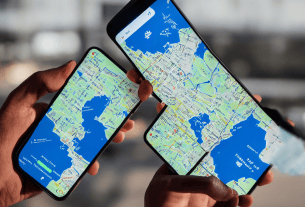I remember standing in a dimly lit Parisian café, all too aware of the judgmental glares from the locals. My attempt at ordering a simple croissant had somehow morphed into a request for a “butter horse,” thanks to my atrocious French. A classic case of linguistic bravado meeting its inevitable demise. But here’s the thing: amid the snickers and my rising embarrassment, I realized something profound. In that moment of butchered language, I was trying—and that mattered more than getting it right. It was a humbling reminder that while I might not ever sound like a native, I could still connect on a human level.

So, what can you expect from this deep dive into the chaos of language learning abroad? We’ll navigate the uncharted waters of immersion, tackle the art of mastering basic phrases, and discover how these often hilarious attempts can break down barriers. Forget the polished, overly optimistic guides that promise fluency in a fortnight. Instead, let’s embrace the awkwardness, the missteps, and the genuine connections that spring from them. This journey isn’t about perfection; it’s about respect, understanding, and the shared laughter that comes from a good, old-fashioned language blunder.
Table of Contents
From ‘Bonjour’ to ‘Baguette’: My Chaotic Dive into Cultural Immersion
Stepping off the plane in Paris, armed with nothing but an enthusiastic “Bonjour” and a wildly inaccurate French phrasebook, I was about to embark on a journey into the heart of cultural chaos. Picture this: a slightly cynical journalist from a coastal town, neck-deep in a language that sounds like music but feels like a minefield. My attempts at conversation were an awkward dance of misplaced accents and unintentional comedy. But here’s the thing—each butchered phrase was a key, unlocking doors to genuine connections with locals who appreciated the effort more than the execution. It’s not about fluency; it’s about showing up, flaws and all, and gaining a nod of respect from the very people you’re trying to connect with.
Now, let’s talk about baguettes. Not just the crunchy, golden loaves that are a national treasure, but the concept of diving headfirst into something quintessentially foreign and emerging with a story worth telling. My chaotic dive into cultural immersion was peppered with moments of sheer panic and unexpected triumphs. Ordering a baguette in a bustling patisserie, I stumbled over words as much as I did over cobblestones, yet somehow, emerged victorious with a warm, crusty prize in hand and a smile from the baker. It was messy, it was imperfect, but it was real. This is the essence of learning a language while traveling—not a pristine classroom experience, but a living, breathing adventure where respect and effort are your greatest allies.
Immersion, I’ve learned, is less about flawless grammar and more about the willingness to step into the unknown, to embrace the chaos, and to let it shape you. It’s about respecting the culture enough to make a fool of yourself, knowing that in that vulnerability lies the real magic. Every “Merci” and “S’il vous plaît” is a thread in the tapestry of understanding, weaving together the fabric of shared human experience. So here’s to the beautiful mess of cultural immersion—where language is the bridge, and every misstep is a stepping stone to something greater.
Lost in Translation, Found in Connection
Stumbling over local words may not make you fluent, but it might just open doors to friendships that need no translation.
Lost in Translation, Found in Connection
In the end, what did I really learn from my misadventures in linguistic chaos? Perhaps it wasn’t mastery over verbs or a flawless accent. Instead, it was the realization that the heart of language isn’t in its perfection, but in its imperfections. Those awkward moments when I stumbled over words, or when a local smirked at my fumbling attempts, were the very instances that brought us closer. Language, I’ve found, is as much about vulnerability as it is about communication. Each misstep was an invitation for connection and understanding, a shared laugh over my verbal blunders.
And isn’t that the essence of cultural respect? Not the polished phrases or the rote memorization of textbook dialogues, but the willingness to step out of our comfortable silence and engage with the world, warts and all. So, here’s to the butchered phrases, the puzzled looks, and the kindness of strangers who saw past my linguistic limitations and met me halfway. Because in those moments, amidst the confusion, we found a common language—one of humanity, curiosity, and mutual respect. And that, dear comrades, is the real victory in this journey.


